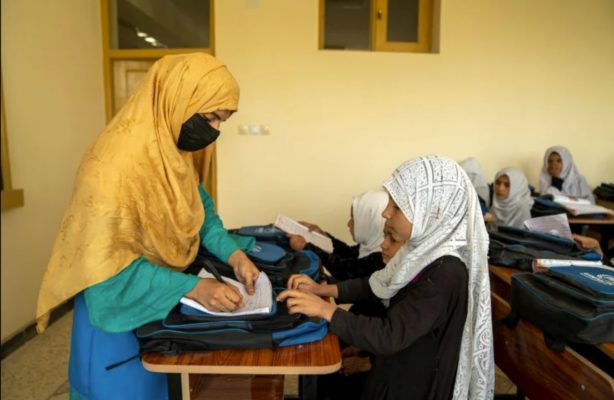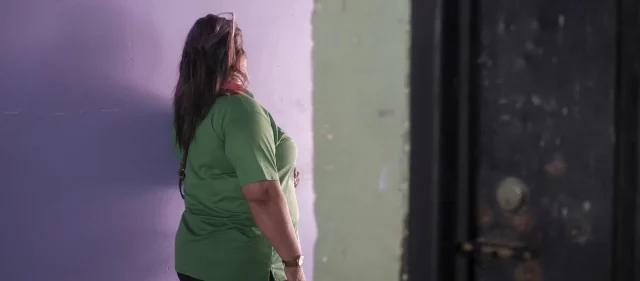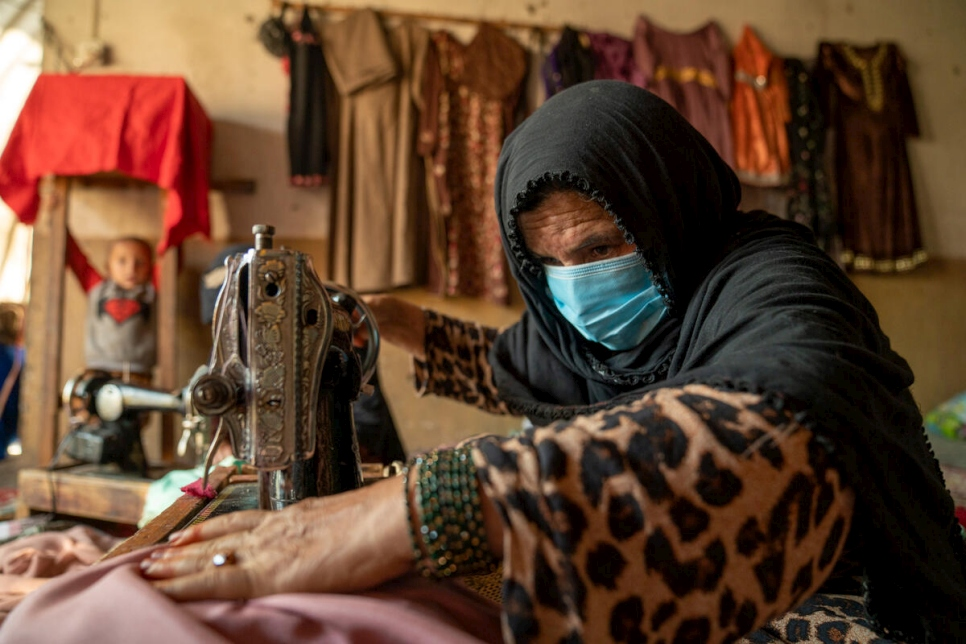
An internally displaced woman living in Jalalabad city in Nangarhar Province works on a garment she is sewing for a customer. She established a tailoring service from her home with support from a UNHCR livelihoods project. © UNHCR/Oxygen Film Studio (AFG)
Displaced women fear they will be unable to support their families without access to work and education.
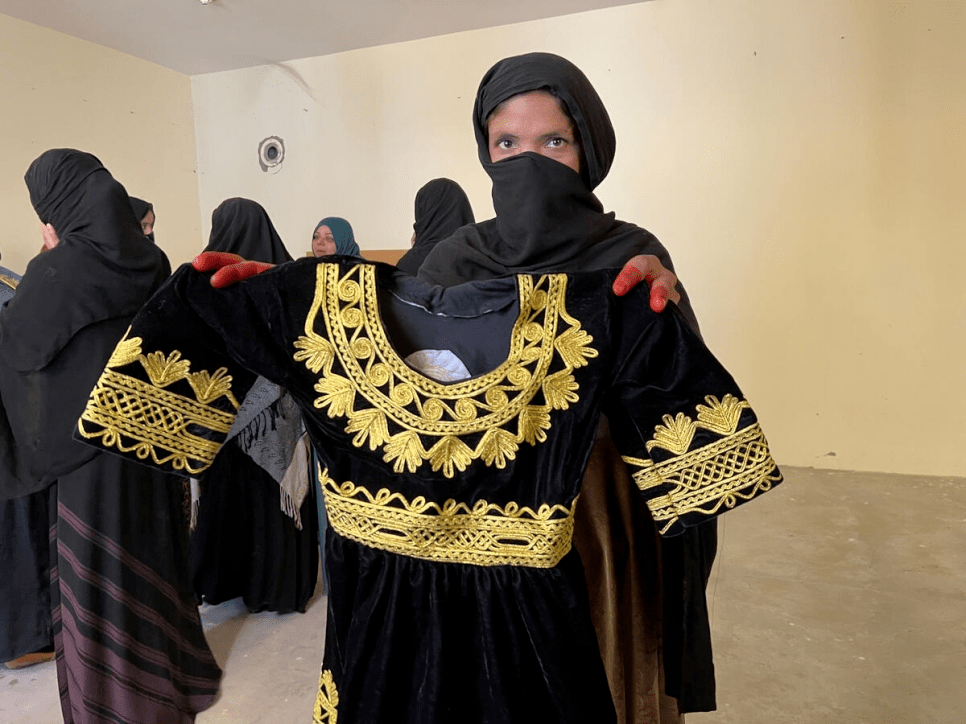
One of the women who received training through the programme holds up a garment she made. © UNHCR/Caroline Gluck
Eighteen-year-old Sanam* who graduated from the training programme last year, said she cried when she heard about the latest decree.
“I was so, so sad and disappointed,” she said. “At night, my worry keeps me awake.”
Sanam is the only member of her family earning an income since her father died. “I was so proud to be able to support my family just like a man. And my family are also very proud of me, that I can support them as a girl,” she said.
Her monthly income has already fallen by two-thirds since the new restrictions were introduced and existing ones tightened. “It’s difficult to go to the bazaar. I can’t go everyday now, and I also need a Mahram (male guardian, who is a family relative) with me. It means it is harder to buy materials for work and it’s harder to sell my products. Before, I could earn about 7,000 Afghanis a month (US$78), but now I’m only able to earn about 2,000 ($22).”
Another woman, Shakoko, nods in agreement. The 26-year-old mother-of-two is also the main breadwinner in her family after her husband went to Pakistan in search of work. “I came here so I could learn about tailoring, which gives me some income.
“The money I earn I use for my medical treatments. If I didn’t have any work, what could I do? I wouldn’t be able to support my family,” she said.
“If I didn’t have any work, what could I do?”
Zinab, a trainer with the project, described it as a lifeline for local women, many of whom are now breadwinners in their families. A widow who learned to sew from her mother and relies on her income as a trainer to support her children, she said the project provides a safe space for women and has also helped them to develop friendships and grow in confidence.
“Many women in this community are not [formally] educated. They don’t have other opportunities to be able to support themselves.
“I’m really afraid about the impact of this for the whole community,” she added. “If you have no job, you have no money and there will be no support for your family. What will be the future for their children?”
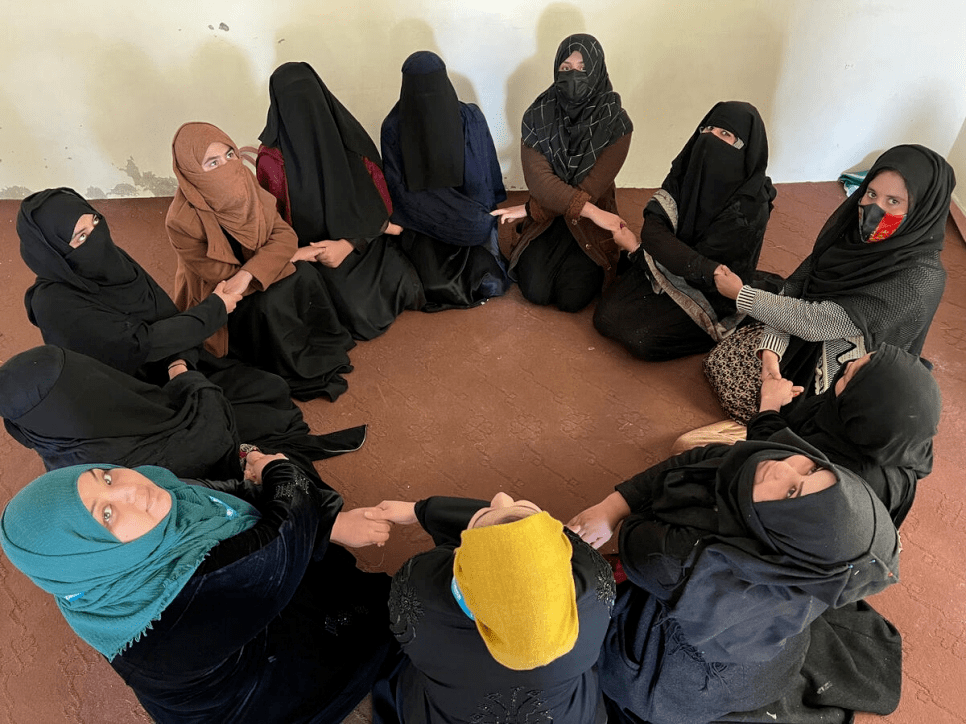
The project provides a safe space for women and helps them to develop friendships and confidence. © UNHCR/Caroline Gluck
Since the de facto authorities came to power in August 2021, girls have been excluded from attending secondary schools, and a ban on women attending universities was announced in December.
The latest directive preventing women from working for NGOs is expected to have a major impact on the delivery of critical humanitarian aid at a time when half of Afghanistan’s population is facing acute food insecurity and more than 3 million people remain displaced from their homes.
UNHCR has joined other UN agencies and NGOs in calling for the directive to be reversed.
“Preventing women from humanitarian work is a grave denial of their humanity,” said UN High Commissioner for Refugees Filippo Grandi. “It will only result in further suffering and hardship for all Afghans, especially women and children.”
As the women leave the centre, an elderly male community leader talks to UNHCR staff, urging them to continue the project, despite the new challenges. “We are very happy with the project. In the future, we hope UNHCR can train not just 10 women, but 100 women here!” he says.
*Names have been changed for protection reasons.
Originally published by UNHCR on 18 January 2023.



